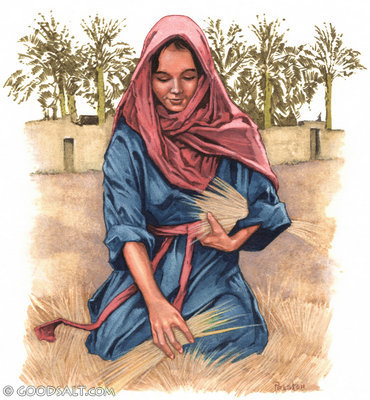In fact, "It will break in pieces like pottery, shattered so mercilessly that among its pieces not a fragment will be found for taking coals from a hearth or scooping water out of a cistern" (v. 14). God promises nothing useful will be taken from these idolatrous walls. God asks the Israelites and us today to accept his solution, "In repentance and rest is your salvation, in quietness and trust is your strength" (v.15). God asks us to trust in Him and not in our own defenses, but how can we do this?
After experiencing pain recently, I was offered the choice of retreating behind my walls, but I knew that those walls were idols that I used to control my emotions. They were vain imaginations that I used instead of leaning my entire personality on Christ. So, what choice did I have? I heard God say that He desired for me to know truth in my inner parts (Psalm 51:6): "Surely you desire truth in the inner parts; you teach me wisdom in the inmost place." What exactly does that mean? It really meant to tear down every vain imagination and high lofty wall I had built that contradicted who God said He made to be and who He was to me. II Corinthians 10:5 declares that we must "demolish arguments and every pretension that sets itself up against the knowledge of God, and we take captive every thought to make it obedient to Christ." The truth is "I am accepted in the Beloved" (Ephesians 1:6); "I am more than a conqueror" (Romans 8:37), not this wallflower myth I have believed for so many years. Thank God for freedom! Let the redeemed of the Lord say so!
Those who have been abused suffer a second-time for not having been believed, so it is tempting to try and prove our innocence. But, God is our vindicator and defender. We cry out to God who delivers us from our enemies. We don’t need walls to retreat behind. We don’t have to deaden our pain through food, exercise, and alcohol. We can come from behind the walls because Adonai Tzvaot, the Lord of Hosts, rouses Himself, to fight on our behalf: "Let God arise and let his enemies be scattered; let those who oppose Him run in defeat from his presence" (Numbers 10:35).There is no fear in love (1 John 4:18). If I fear, I hide behind walls. I become a wallflower. Read the questions and answer them truthfully. What if you could accept what Christ has done for you?
Why does rejection speak louder than Your Acceptance, Y’Shua?
Why does fear speak louder than Your Love, Y’Shua?
Why do curses speak louder than Your Blessings, Y’Shua?
Why do criticisms speak louder than Your Exhortations, Y’Shua?
Why do lies speak louder than Your Promises, Y’Shua?
Why does loneliness speak louder than Your Presence, Y’Shua?
Why does pain speak louder than Your Peace, Y’Shua?
Why does sadness speak louder than Your Joy, Y’Shua?
Why does emptiness speak louder than Your Spirit, Y’Shua?
Why does doubt speak louder than Your Cross, Y’Shua?
Why does fear speak louder than Your Love, Y'Shua?
Gladly, No longer a Wall-flower,
MJ






